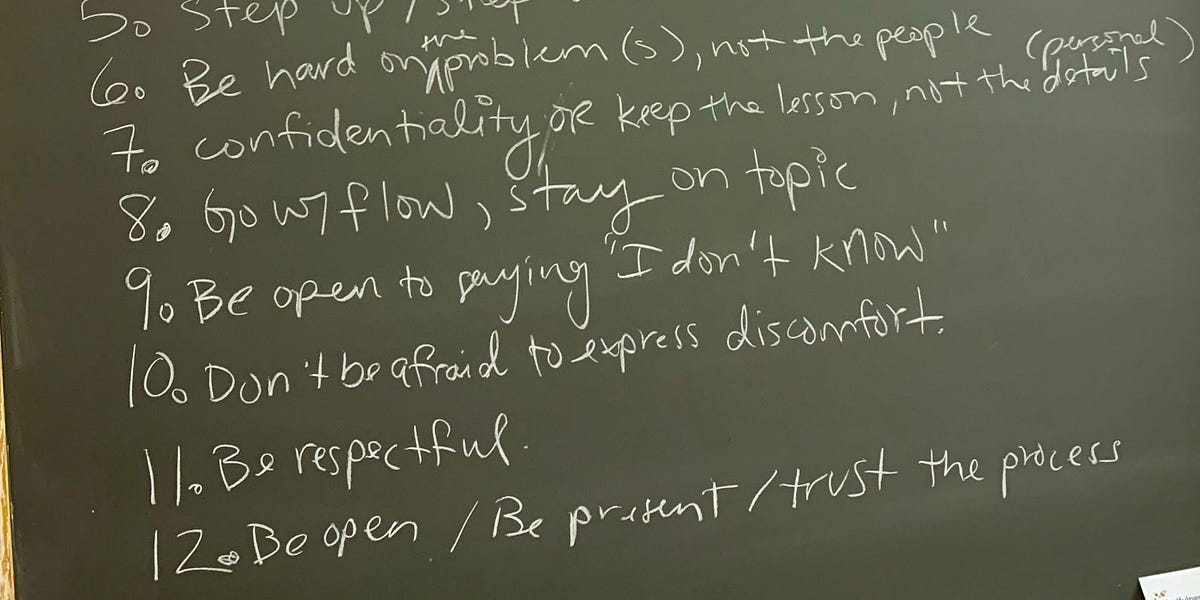
The Occasional Flimsiness of Group Agreements

There are a lot of organizational structures and lived practices embedded in our bodies that we just enact by default. But through explicit facilitation practices or when we make meetings happen in a certain way, that helps change these conditioned ways of operating. In the process of learning to work this way, what really helps is, again, trust. T... See more
Willa Köerner • On growing a cooperative like you’d grow a garden
Natalie Audelo added
The group collectively improvised a new rule to overrule, temporarily, their usual etiquette. By making it fun and harmless, if slightly embarrassing, they created a fleeting social contract that everyone bought into. The fact that the rule was physical and funny also added some much-needed lightness to the group.
Priya Parker • The Art of Gathering: How We Meet and Why It Matters
There are a lot of organizational structures and lived practices embedded in our bodies that we just enact by default. But through explicit facilitation practices or when we make meetings happen in a certain way, that helps change these conditioned ways of operating. In the process of learning to work this way, what really helps is, again, trust. T... See more
Willa Köerner • On growing a cooperative like you’d grow a garden
Keely Adler added
As with purpose, it is often through conflict and disgruntlement that underlying assumptions about a gathering’s social contract reveal themselves.
Priya Parker • The Art of Gathering: How We Meet and Why It Matters
As with purpose, it is often through conflict and disgruntlement that underlying assumptions about a gathering’s social contract reveal themselves.
Priya Parker • The Art of Gathering: How We Meet and Why It Matters
Conventional goal-setting sucks because it overlooks the actually important part of agreeing on goals collectively, which is to also agree on what you’re willing (and unwilling) to give up to achieve those shared goals. By not paying attention to what tradeoffs stakeholders believe are (or aren’t) acceptable, conventional goal-setting makes conflic... See more
vaughn tan • Unpacking Boris
sari added
For everyone to have the opportunity to be involved in a given group and to participate in its activities the structure must be explicit, not implicit. The rules of decision-making must be open and available to everyone, and this can happen only if they are formalized. This is not to say that formalization of a structure of a group will destroy the... See more
Jo Freeman • The Tyranny of Stucturelessness
sari added
And finally, to create more meaningful everyday gatherings, create a temporary alternative world through the use of pop-up rules.
Priya Parker • 3 steps to turn everyday get-togethers into transformative gatherings
sari added